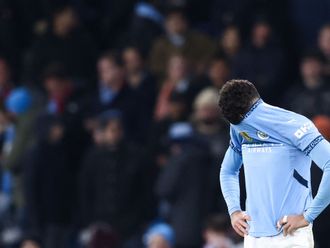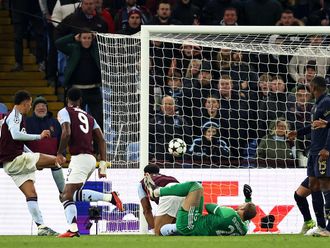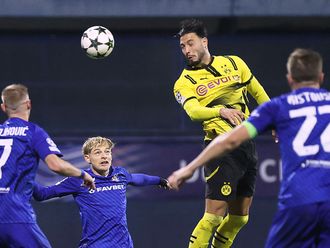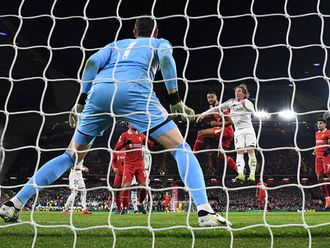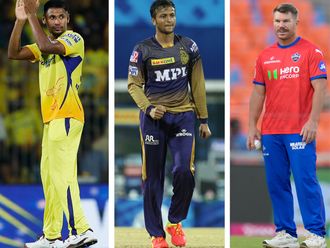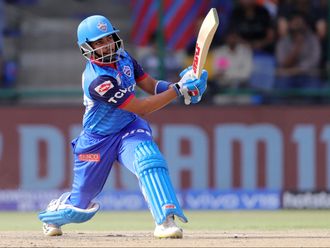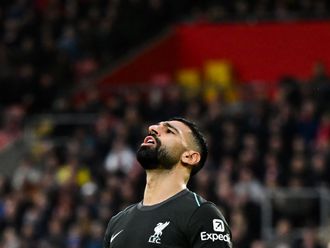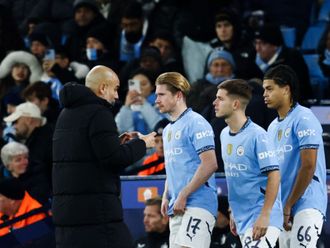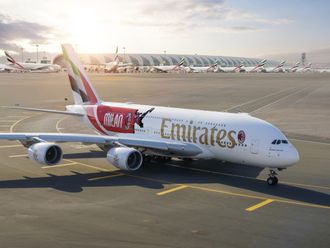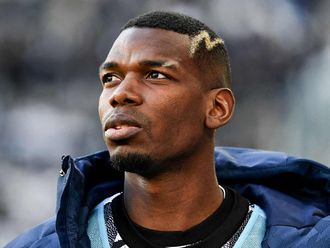Singapore: Didier Drogba has opened up a world of opportunity in China and blazed a trail for other senior stars as the wealthy Asia-Pacific region becomes an increasingly hot football destination.
The ex-Chelsea striker remains the headline act after a year that also saw Nicolas Anelka, Marcello Lippi and Alessandro Del Piero head east, with even David Beckham linked with a move to Australia or China.
Japan’s Shinji Kagawa made a breakthrough at Manchester United, but moves in the other direction are catching attention as economic imperatives help raise the profile of Asian football.
Many questioned whether Drogba could ride out the culture shock of Shanghai Shenhua, but the Ivorian, nicknamed “Devil Beast” by admiring fans, rose above boardroom turmoil at his new club and looks set to stick around next season.
“Wait for me, I’ll be back,” Drogba told the Oriental Sports Daily, as he left Shenhua’s Hongkou Football Stadium after their final match in November.
Anelka was the pioneer when he joined Shenhua at the start of the season, but Drogba’s move, shortly after his heroics in the Champions League final, caused shockwaves with big European clubs queuing for his signature.
“I hope to help promote Chinese football around the world and further improve the links between China and Africa,” Drogba said, when announcing the deal — for a reported $300,000 (Dh1.1 million) a week — in June.
Free-spending Guangzhou Evergrande snapped up World Cup-winning coach Lippi and Borussia Dortmund striker Lucas Barrios in their quest for Asian glory, but had to be content with a domestic league and cup double.
And Australia’s A-League pulled off a coup when Sydney FC secured the services of Italian great Del Piero. Ex-England forward Emile Heskey has also been a hit at Sydney’s near-neighbours, the Newcastle Jets.
Such purchasing power meant Australia and China were tipped as top of the list when Beckham announced his departure from LA Galaxy, with the intention of playing for one more club before retiring.
The Asia effect was in evidence elsewhere with the Thai league luring former England manager Sven-Goran Eriksson and even Malaysia, notorious for its match-fixing scandals, attracting ex-English Premier League players.
South Korea’s Ulsan Hyundai won Asia’s team, coach and player of the year awards after their unbeaten run to the AFC Champions League title, rounded off in swashbuckling style with a 3-0 win over Al Ahli in the final.
Coach Kim Ho-Gon masterminded a competition-record nine straight wins and winger Lee Keun-Ho earned Asia’s top individual honour, as Ulsan earned a spot at the Club World Cup and helped bury the K-League’s corruption woes in the process.
Kagawa left Borussia Dortmund mid-year to become Manchester United’s first Japanese player, and he quickly became a hit before being sidelined by a knee problem.
Asian champions Japan were the form international team and have one foot in the 2014 World Cup finals in Brazil after winning four out of five games so far in the last qualifying round.
Off the pitch, the Asian Football Confederation (AFC) struggled with the fall-out of president Mohammad Bin Hammam’s suspension over corruption claims but there was a breakthrough when the body announced leadership elections next year.
Caretaker leader Zhang Jilong, pledging a “new era of transparency” looks favourite to secure the post full-time at the body’s Congress, due by the end of April, where bin Hammam’s FIFA executive committee seat is also up for election.
Indonesia remain under the threat of sanctions over a rebel league which has split the country’s football establishment, while Singapore and Thailand, with six titles between them, will contest Southeast Asia’s AFF Suzuki Cup final.


